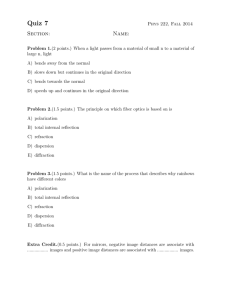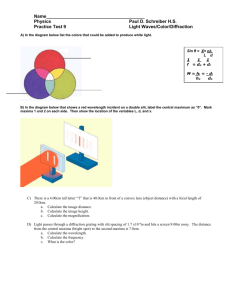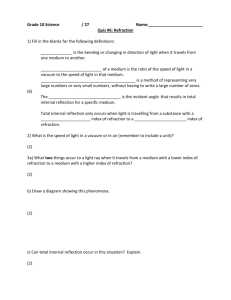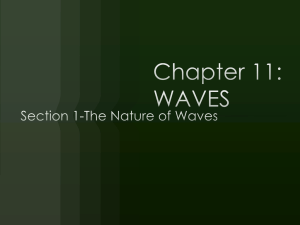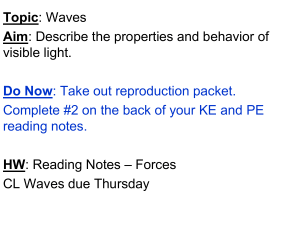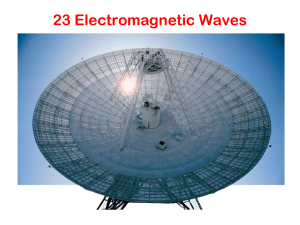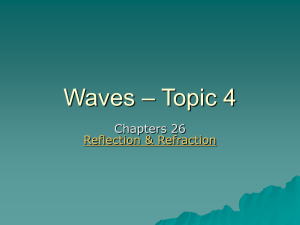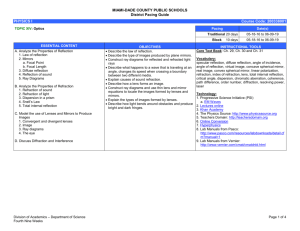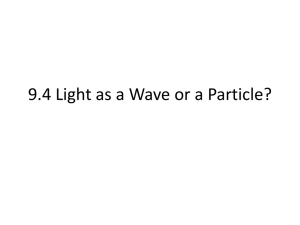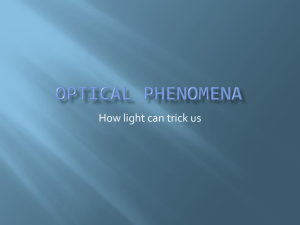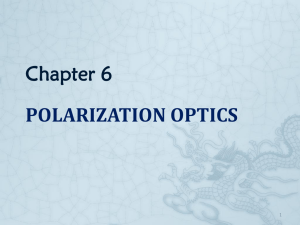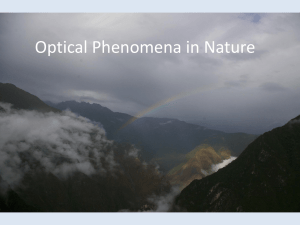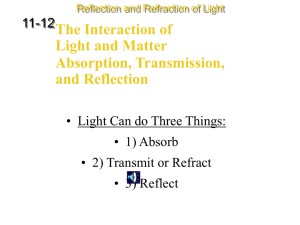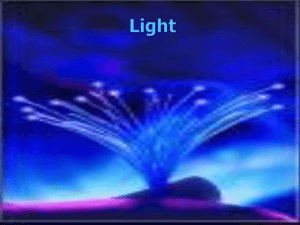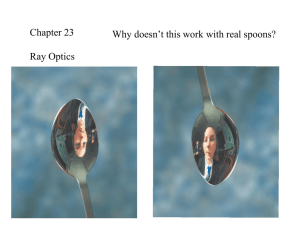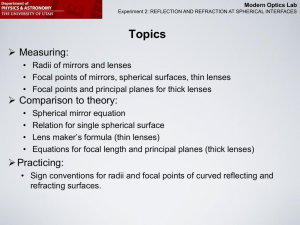Ch 33 Electromagnetic Waves
advertisement
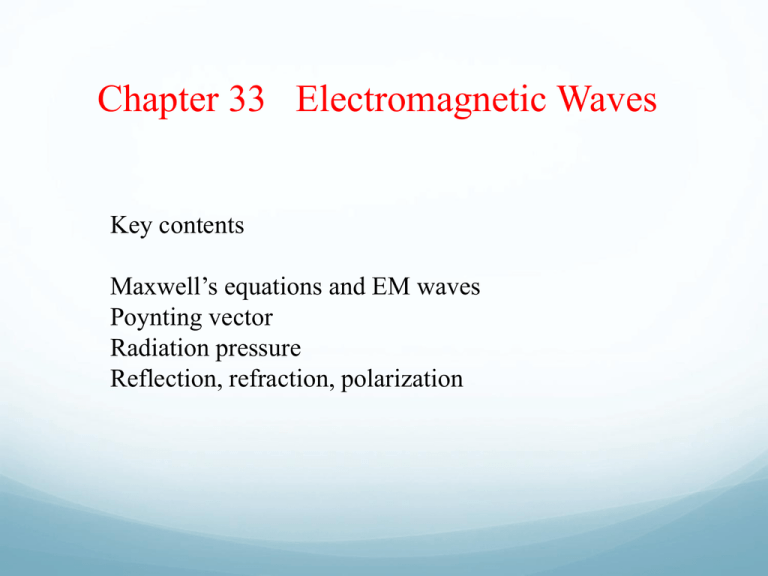
Chapter 33 Electromagnetic Waves Key contents Maxwell’s equations and EM waves Poynting vector Radiation pressure Reflection, refraction, polarization EM waves in vacuum ¶B Ñ´E = ¶t ¶E Ñ ´ B = m0e0 + m0 J ¶t Ñ ´(Ñ ´V) = Ñ(Ñ·V) - Ñ2V In vacuum, r = 0, J =0 2 ¶ E 2 Ñ E = m0e0 2 ¶t Ch 16: v = 2 1 m0e0 = c2 (Ñ2V = (Ñ·Ñ)V ) 2 ¶ B 2 Ñ B = m0e0 2 ¶t 33.3: The Traveling Wave, Quantitatively: E = Em sin(kx - w t) B = Bm sin(kx - w t) One can show that in vacuum, the two fields are in phase, perpendicular to each other, and Em=cBm 33.3: The Traveling Wave, Qualitatively: We can write the electric and magnetic fields as sinusoidal functions of position x (along the path of the wave) and time t : Here Em and Bm are the amplitudes of the fields and, w and k are the angular frequency and angular wave number of the wave, respectively. The speed of the wave (in vacuum) is given by c. Its value is about 3.0 x108 m/s. (defined to be 299 792 458 m/s) 33.2: Maxwell’s Rainbow: 33.2: Maxwell’s Rainbow: Visible Spectrum: 33.3: The Traveling Wave, Qualitatively: # EM waves of different wavelengths are generated in different ways. 33.5: Energy Transport and the Poynting Vector: = uB Energy flux: S = uc Example, Light Wave rms values of electric and magnetic fields: 33.6: Radiation Pressure: F S P= = =u A c (total absorption) F 2S P= = = 2u A c (total reflection) 33.7: Polarization: 33.7: Polarization: If the intensity of original unpolarized light is Io, then the intensity of the emerging light through the polarizer, I, is half of that. 33.7: Polarization: Intensity of Polarized Light Example, Polarization and Intensity: 33.8: Reflection and Refraction: The index of refraction, n, of a medium is equal to c/v, where v is the speed of light in that medium and c is its speed in vacuum. The refraction law is also called Snell’s law. 33.8: Reflection and Refraction: 33.8: Reflection and Refraction: 33.8: Chromatic Dispersion: The index of refraction n encountered by light in any medium except vacuum depends on the wavelength of the light. The dependence of n on wavelength implies that when a light beam consists of rays of different wavelengths, the rays will be refracted at different angles by a surface; that is, the light will be spread out by the refraction. This spreading of light is called chromatic dispersion. 33.8: Chromatic Dispersion: 33.8: Chromatic Dispersion and Rainbow: Example, Reflection and Refraction of a Monochromatic Beam: Example, Reflection and Refraction of a Monochromatic Beam: 33.9: Total Internal Reflection: For angles of incidence larger than qc, such as for rays f and g, there is no refracted ray and all the light is reflected; this effect is called total internal reflection. For the critical angle, Which means that 33.10: Polarization by Reflection: Brewster angle: The reflected light of an unpolarized incident light is partially or fully polarized. When it is fully polarized (always in the direction perpendicular to the plane of incidence), the incidence angle is called the Brewster angle. In such a case, the reflected and refracted lights are perpendicular to each other. Homework: Problems 13, 31, 40, 51, 65
